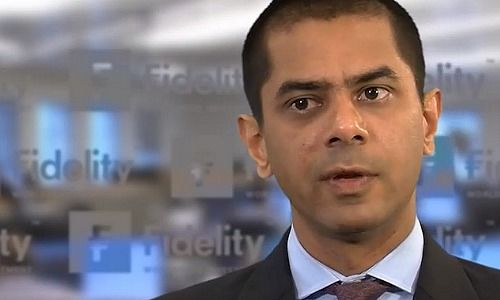Fidelity’s Nitin Bajaj is controversial because he thinks unconventionally. But the fund manager’s investment strategies have proven themselves to be successful in volatile markets. His approach isn't without risk.
Innovation, benchmarks, branches? Nitin Bajaj isn't interested, at least when it comes to investing. He’s also unconcerned about economic or general market data
The Fidelity fund manager is focused on small- and mid-sized firms in Asia which are undervalued.
Classic Stockpicker
Bajaj chooses his companies out of a universe of roughly 17,000 firms according to three criteria: performance and profit-and-loss statements from the previous ten years, quality and consistency of management, and current share price. If these three metrics measure up, Bajaj buys.
The fund manager, who joined Fidelity in 2003, manages just over 800 million Swiss francs in two funds, one devoted to smaller Asia companies and another called «Asian Values». More than half is manages in the smaller companies fund, of which Bajaj says «small-cap companies in Asia have outperformed all other asset classes in a long-term view». Bajaj proved this point in the last three years – as a classic stock-picker who chooses religiously along value-based principles.
Four Role Models
Like Warren Buffett, the most well-known value investor on the planet, Bajaj hunts the most valuable gems in Asia’s stock universe.
Bajaj, who grew up in Mumbai and now is based in Singapore, doesn't rely on data commonly used by investment professionals, but on the knowledge and expertise of four investment experts, he told finews.asia.
They include Buffett and his deputy Charlie Munger; Joel Greenblatt, fund manager and Columbia University professor, and hedge fund manager Seth Klarman. All four are avowed value investors.
Bad Luck No Excuse
Everything Bajaj views is a definition of risk, he says. «For me, it’s always about the probability of suffering a complete loss of my capital.»
He invests cautiously and prudently, but decisively – a so-called agnostic investor. Bad luck can never be an excuse for losing money is one is his favorite mottos. «I never buy any stocks. I buy the business models that convince me of their potential.»
Aberrations as Opportunities
That’s why Bajaj likes investing in small firms, which are less closely followed by financial analysts and more often offer the type of aberrations that he exploits. The strategy is paying off: the Fidelity money manager is one of the best in his class.
Bajaj has benefited from being underweight on Chinese small-caps, betting on Indian firms instead. He is also a fan of Filipino stocks, as well as firms in Myanmar, a country which has fallen into favor with investors with more risk capacity.
Risky Business
Some of the largest positions in Bajaj’s Asia small-cap fund are Power Grid Corp of India, the Thai car lender Tisco Financial, and Housing Development Finance, an Indian mortgage lender which also holds insurance stakes.
Anyone hoping to see a pattern in Bajaj’s portfolio will be left wanting, because the fund manager picks his favorites case-by-case. It’s an approach loaded with risk: if a fund manager fails to perform, he is quickly replaced, as various examples from the past have shown.



























